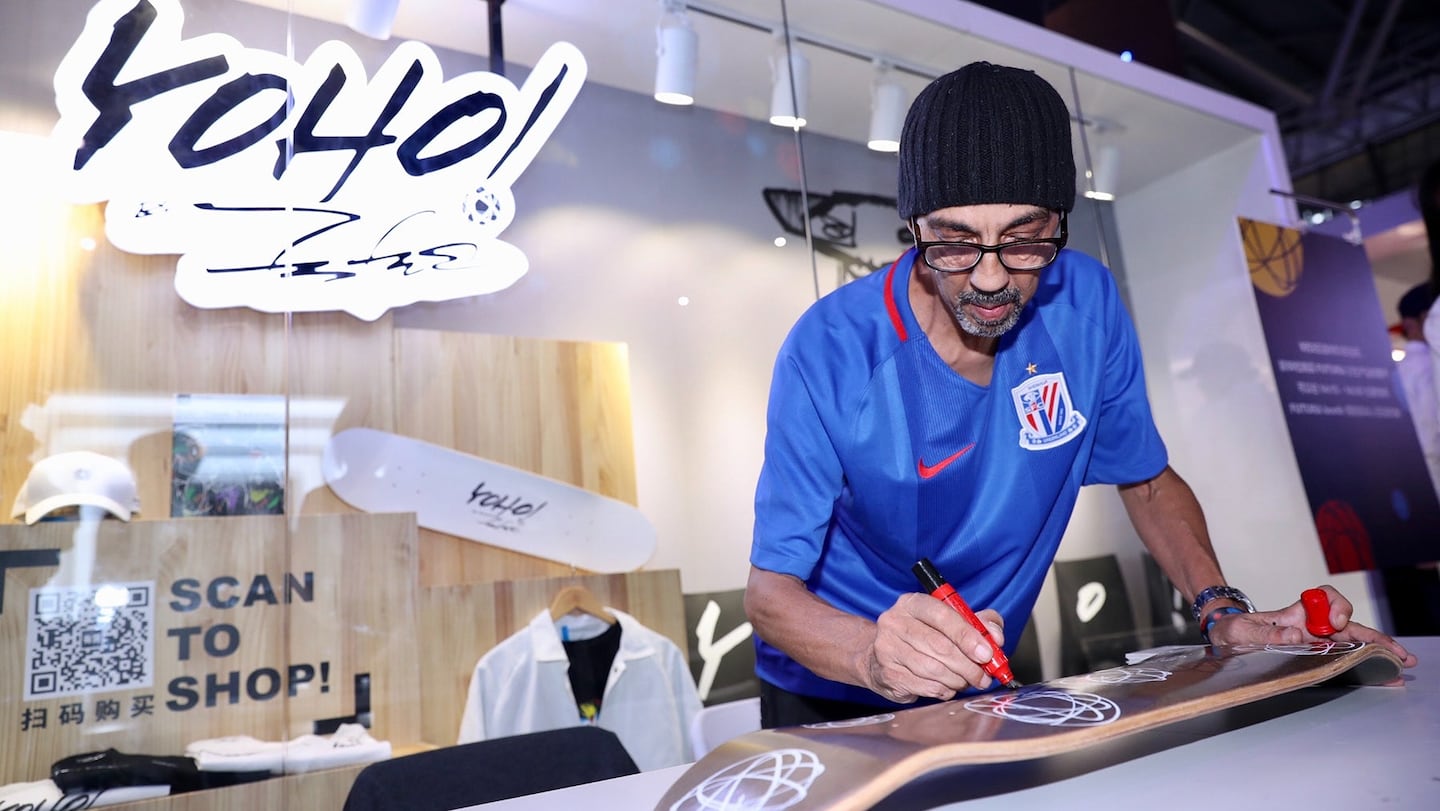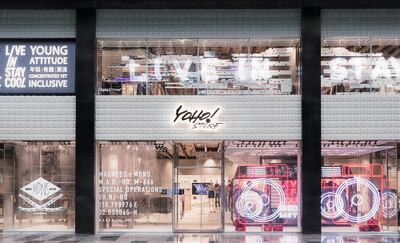
The Business of Fashion
Agenda-setting intelligence, analysis and advice for the global fashion community.

Agenda-setting intelligence, analysis and advice for the global fashion community.

HONG KONG, China — Yoho!, one of China's most influential streetwear platforms, is the latest addition to C Ventures' portfolio of fashion, beauty and media startups.
The fund, launched one year ago by Adrian Cheng, invests in companies that takes innovative approaches to commerce, including luxury e-commerce site Moda Operandi, events organiser Beauty Con, digital wardrobe manager Finery, and media properties like Dazed and Nowness.
Today, the billionaire entrepreneur led a $25 million Series E+ investment round made through C Ventures in Yoho!, a youth-oriented platform that combines commerce and media. According to Chao Liang, founder and president of Yoho!, the platform will use the funds to scale the business to reach more customers, particularly in Western markets, as well as improve its online and offline integration.
The company has raised over $150 million since its first financing round in 2006.
ADVERTISEMENT

Yoho! store | Source: Courtesy
C Ventures founding partner Clive Ng said he and co-founder Adrian Cheng started looking to invest in a streetwear brand after the Carlyle Group took a stake in Supreme last October. “But the valuations were high, because of the hype and because of the Supreme price tag. We also don’t have the management resources to operate a brand itself,” he said. “We felt that the right move was to look at a platform with multibrands in that sector.”
“Through merging resources and joining forces, Yoho!’s influence in the media, retail and lifestyle sectors will grow considerably, whereas K11 [an innovative museum-retail concept launched by Cheng] will benefit from Yoho!’s high-quality curated content as well as access to international fashion resources,” added Yoho!’s Liang.
Founded in 2005, Yoho! began as little more than a platform for Chinese youth to shop for underground labels and keep up with A-list Asian idols from Kris Wu to Kiko Mizuhara. Since then it has expanded to include events, websites and stores that appeal to China's wealthy second generation, known as fuerdai. The Yoho! empire now includes Yoho! Boy and Yoho! Girl, annual festival Yo'Hood, e-commerce site Yoho! Buy, brand incubator Yo'Hope and retail boutiques Yoho! Store and Yoho! Blu.
The investment comes as luxury spend is shifting towards millennial and Gen-Z consumers, who are set to account for 45 percent of the global luxury market by 2025, according to management consulting firm Bain & Company, and often see fashionable streetwear labels like Supreme to be cooler than traditional luxury brands.
In China, particularly, streetwear is a relatively new category — it was previously frowned upon due to its connection with the purported immorality of hip-hop culture, with swearing, drug references and political discourse all disapproved of by Chinese censors — but it is growing fast.
According to 2018 figures from Alibaba’s Tmall, China’s largest e-commerce platform, streetwear growth last year was 60 percent higher than average apparel category growth.
Looking ahead, Ng hopes to enable “closer collaborations between Yoho! and our existing portfolio assets that could bring more awareness for them in the West.” He also expressed interest to partner with Western street-focused platforms like Highsnobiety or Hypebeast. “Having the largest streetwear e-commerce platform allows us to be able to experiment a little bit more.”
Related Articles:
[ Inside Yoho! China’s Streetwear EmpireOpens in new window ]
[ Adrian Cheng Launches C Ventures, an ‘Investment Club’ With Eye on Youth CultureOpens in new window ]
[ Controversial Hip-Hop Stars Keep Brands GuessingOpens in new window ]
With consumers tightening their belts in China, the battle between global fast fashion brands and local high street giants has intensified.
Investors are bracing for a steep slowdown in luxury sales when luxury companies report their first quarter results, reflecting lacklustre Chinese demand.
The French beauty giant’s two latest deals are part of a wider M&A push by global players to capture a larger slice of the China market, targeting buzzy high-end brands that offer products with distinctive Chinese elements.
Post-Covid spend by US tourists in Europe has surged past 2019 levels. Chinese travellers, by contrast, have largely favoured domestic and regional destinations like Hong Kong, Singapore and Japan.